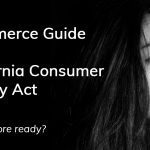Major changes in sales tax laws effective Jan 1, 2019 may mean you’re doing it all wrong. If you’re not collecting sales taxes in all jurisdictions you are required to, your business can be subject to an audit and fined. Thus an error has the potential to be expensive. You really need to determine are you collecting sales taxes for online sales correctly?
It used to be easy.
Historically, the sales tax collection and filing requirements for online-only businesses have been easy. You only had to collect sales tax and file a sales tax return in states where you had nexus. For most stores, this meant that you only had to collect in the state where your business was physically located. But let’s start out with the basics…
What is nexus?
The technical definition of nexus is any state in which your business has a connection. Originally that meant either a physical location under your control, or in states where you had employees. This was easy for store owners to manage, and few had nexus outside of their home state unless they had multiple physical stores or salespeople in other states.
The definition of nexus has been changing.
Over the years several battles have been fought to try and prevent the hassle and expense of collecting sales taxes across the nation. This can be a huge burden on small businesses as there are thousands of taxing districts.
Additionally, online stores enjoyed the competitive advantage of not collecting sales taxes as it made them less expensive. Customers loved this too!
Traditional retailers did not.
California was the first state to declare that if you have drop ship warehouse, whether or not they are your warehouse or belonged to your suppliers, you have a physical presence in the state and therefore have nexus. On a positive note, as a business, you could choose to pay sales tax on either your wholesale price and skip the requirement to file a sales tax return with California or collect from your customers at retail value, then file a state tax return.
The Supreme Court weighs in.
In 2011, the Supreme Court clarified that states may impose their own sales tax laws regarding out of state sellers. To date, most have not, but this is changing.
Amazon has been leading the fight against a national sales tax
Amazon fought this battle over the years as state after state wanted their share of Amazon’s revenue. Amazon’s taxable nexus is more complicated than most online operations. The product that is stocked and sold by Amazon directly has always been subject to sales tax in any state where they maintained warehouses, offices or personnel – just as it would be for any other business.
However, Amazon also has its marketplace. The marketplace is stocked by other merchants who wish to sell their product on Amazon’s website. Marketplace vendors were responsible for ensuring they were collecting and forwarding sales taxes correctly per the laws of their own state. Amazon would collect and forward the taxes, but only if the merchant set up their Amazon store to compute taxes correctly.
The existence of the marketplace also created taxation headaches for Amazon on its own products. Over the years, states have decided that Amazon’s marketplace sellers constitute nexus. Amazon now collects sales tax for everything sold by Amazon in all US states that have a sales tax. Currently, Amazon will collect and forward sales taxes to all required jurisdictions on behalf of the seller. At least this tax collection circumstance is headache-free for the merchant.
Economic nexus.
Over the years several states including Colorado and New York established laws declaring “economic nexus.” Economic nexus requires out of state retailers who have sales above a specific dollar value, or transaction count, within that state to collect and forward sales taxes. In other words, you do NOT need a physical presence within a state to have nexus.
New, national law may apply to you
While each state still sets its own laws, the Supreme Court recently ruled that the concept of “economic nexus” is legal and set threshold number for in-state revenue and minimum order count. This is opening the door for more states to require tax collection, the filing of a sales tax return, and forwarding of collected taxes.
There is still no uniform law that covers all 50 states. Since the laws regarding sales tax are rapidly changing, you need to keep track of what may impact your business.
You may have nexus in a state if:
- You have a physical presence within that state. This includes a building, store, office, or remote employee, or
- This may include a 3PL (fulfillment service) or drop ship supplier, or
- You have an affiliate program and have affiliates in that state, or
- You hit “economic nexus.” As defined in the newest SCOTUS ruling, this is $100K in retail sales, or 200 orders, within that state.
Avalara has a great article covering this topic, as well as an interactive map of the states so you can explore which states may have laws that affect your business. This page is kept current as laws change so I recommend you bookmark it.
Economic Nexus – State by State






